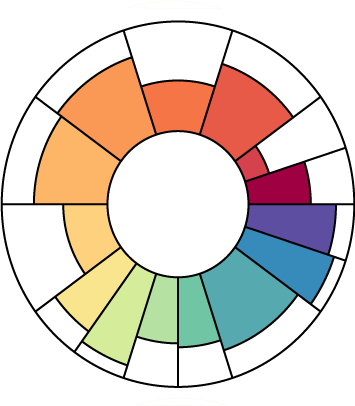Overview
What is the Ocean Health Index?
The Ocean Health Index (OHI) is a framework for assessing ocean health based on the sustainable provisioning of benefits and services people expect from healthy oceans, such as food, cultural and social value, and jobs.
The Ocean Health Index was originally developed by an interdisciplinary team of scientists to assess global ocean health. This was a huge success and the global OHI assessment has been repeated every year since 2012!
You can explore the global OHI scores in a variety of ways:
Explore scores
The OHI framework has since been applied to many different regions, which we refer to as OHI+ assessments. The beauty of the OHI framework is that it can be tailored to different spatial scales and can accomodate a range of contexts and values. This is possible because the core framework of how goals are scored does not change while the goal models can be adapted to accomodate local information and decisions.
Explore the many OHI+ assessments that have been conducted:
OHI+ assessments
We provide many resources to help people conduct their own regional assessments and generally learn how to do open data science:
Conducting an OHI+ Open Data Science
Open Data Science

While humans exist they will be an important part of marine systems. The Ocean Health Index acknowledges this reality.
The basic philosophy of the Ocean Health Index is that it measures how well ocean systems are sustainably providing people with the benefits and services they need and desire from marine systems. The global OHI measures the status of these key societal ‘goals’:
- artisanal fishing opportunity
- biodiversity
- carbon storage
- clean waters
- coastal livelihoods and economies
- coastal protection
- food provision
- natural products
- sense of place
- tourism and recreation
This approach to assessing ocean health is inherently human-centric, which we believe is an advantage of the Index. While humans exist they will be part of the marine system, both depending on and impacting global oceans. The OHI acknowledges this reality and directly assesses what we ultimately care about. For example, most people do not directly care about nutrient pollution, however, they do care about its effects on the ocean’s ability to provide recreation and food.
For this reason, the OHI goes beyond assessing only the pressures acting on ocean ecosystems. However, pressures are important, and they are incorporated into the Ocean Health Index as a threat to the future provisioning of benefits and services.
Another benefit of the OHI is that it combines many indicators into a comprehensive framework. This is in contrast to focusing on individual indicators, such as phosphate levels, sedimentation, biodiversity, etc. Of course, individual indicators provide very important pieces to the puzzle, but individually they provide limited information when it comes to evaluating how well an overall ecosystem is functioning.
Without an overall framework to evaluate indicators, certain indicators may be overemphasized relative to their true importance due to researcher bias (most researchers believe their area of study is the most important), trends in research (what is currently considered a hot topic and is funded), and availability of data (e.g., some data is easier to collect). A model that combines multiple indicators will inevitably have flaws, but at least we know which variables are included and how they are weighted.